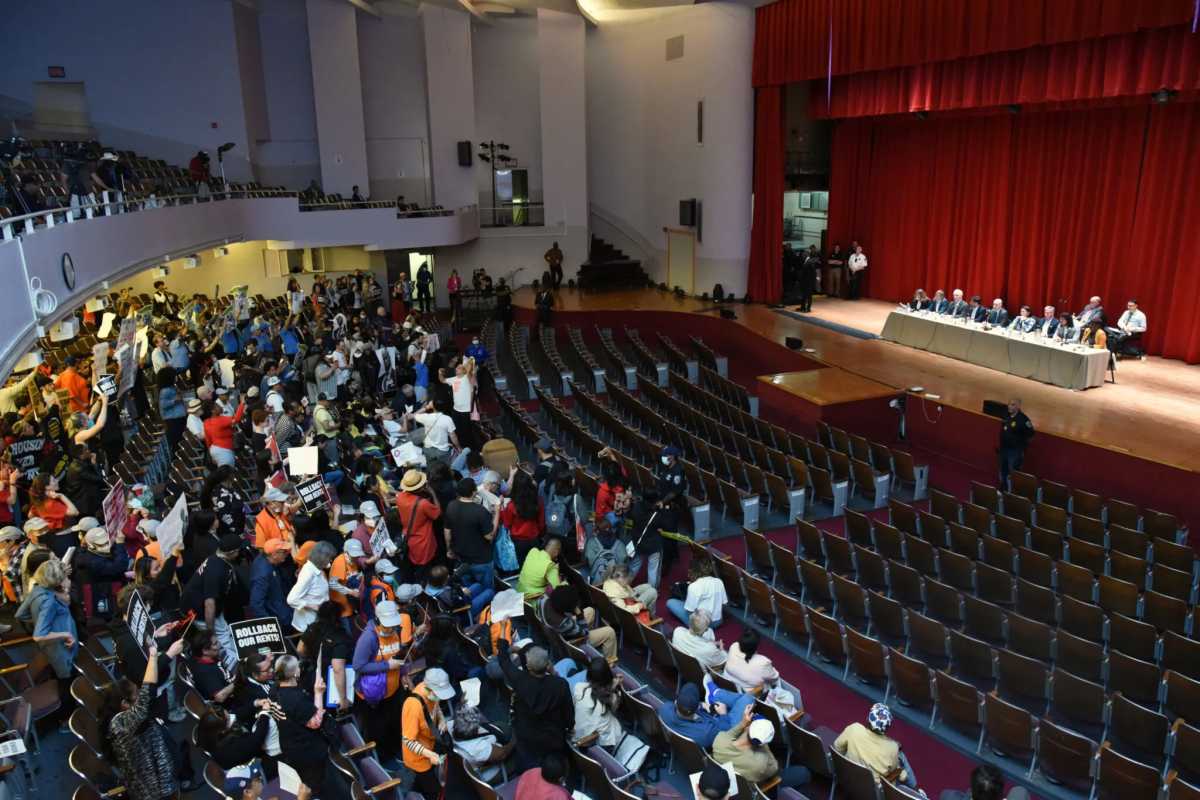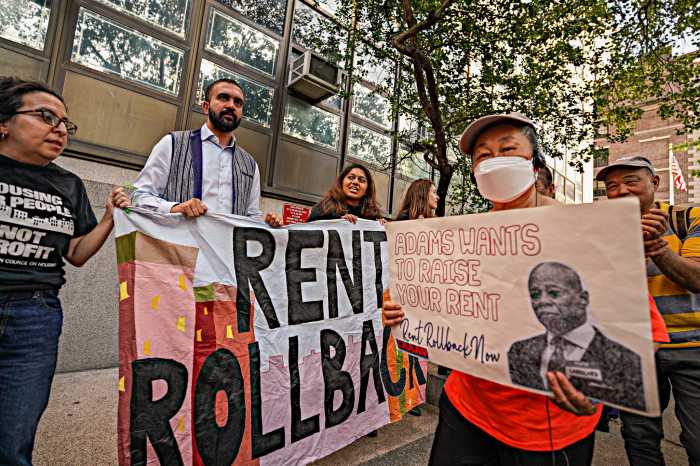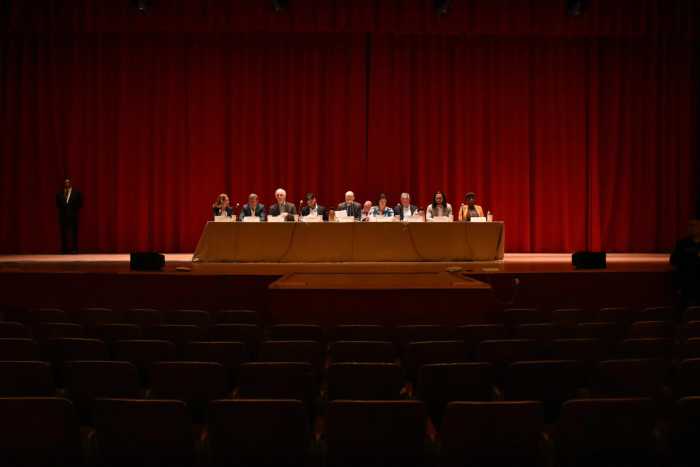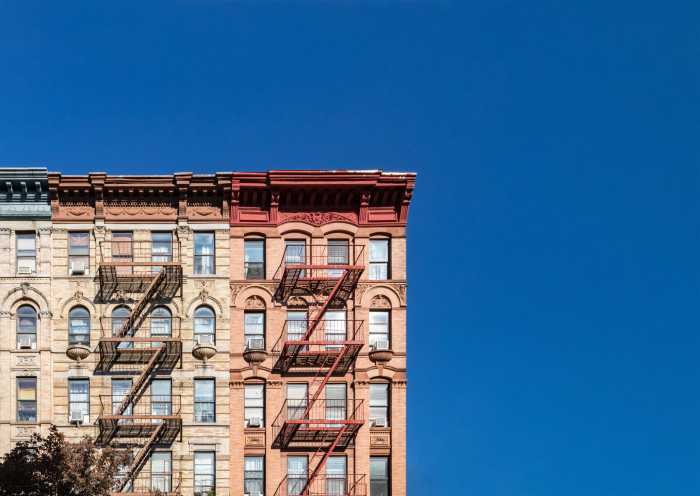New York City’s roughly 1 million rent-stabilized tenants could see their rents hiked by as much as 6.5%, according to preliminary ranges approved by the city’s Rent Guidelines Board (RGB) Tuesday night.
The nine-member panel, made up entirely of Mayor Eric Adams’ appointees, advanced in a 5-2 vote (with two abstentions) on April 30 the preliminary proposal to hike rents 2% to 4.5% for one-year leases, and 4% to 6.5% for two-year leases. The proposed increases were similar to ranges that the RGB staff presented in a report last month for how much more rental income landlords would need to maintain their rent-stabilized housing stock.
The board will settle on final rent increase amounts during a scheduled June 17 vote — and if Tuesday’s preliminary vote was any indication, the decisive vote could prove quite uproarious.
Throughout the April 30 meeting, hosted at LaGuardia Community College in Long Island City, Queens, tenant advocates opposed to any rent increases booed, jeered and chanted “rent roll back.”
The board’s two tenant representatives gave lengthy remarks, slamming the process as “a sham” and speaking about the potentially devastating impact of further raising rents on low income tenants before ultimately walking out of the meeting, and abstaining from the vote.
“I’ve decided that the only vote we’ll be making tonight is a vote of no confidence in this mayor and in this board,” said Adán Soltren, one of the tenant advocates, before heading for the door.
‘Far beyond what is reasonable’
Mayor Adams has always insisted that he does not tell board members which way to vote, nor does he claim to try to influence their decisions. But while the RGB is supposed to operate as an independent body, its members generally reflect the priorities of the mayor who appointed them.
In a Tuesday night statement, Mayor Adams said the upper end of the proposed two-year lease hikes would be untenable for tenants. At the same time, he emphasized the board must also look out for landlords — making sure they have enough income in rent to maintain their properties.
“Our team is taking a close look at the preliminary ranges voted on by the Rent Guidelines Board this evening and while the Board has the challenging task of striking a balance between protecting tenants from infeasible rent increases and ensuring property owners can maintain their buildings as costs continue to rise, I must be clear that a 6.5% increase goes far beyond what is reasonable to ask tenants to take on at this time,” Adams said. “I know well that small property owners also face growing challenges, and I encourage them to work with the city to utilize our many preservation tools so that, together, we can work to stabilize buildings and neighborhoods, all while keeping tenants in their homes.”
Either way, rents are likely to rise this coming year — and historically, the increases fall somewhere within the preliminary ranges that the board approved.
Fear of ‘devastating consequences’
The panel’s vote sets the stage for the third-round of rent increases stabilized tenants will see since Adams took office in 2022. Last year, the RGB greenlit increases of 3% for one-year leases, and divided two-year lease increases into two rounds: 2.75% in the first year and 3.2% of the increased amount in the second.
Under Adams’ predecessor, Bill de Blasio, the board voted to keep rents frozen for several years.
The Legal Aid Society, in a Tuesday night statement, said the ranges approved in the board’s vote will have “devastating consequences” for low-income tenants. But the legal defense group said the board can still “reconsider” its vote and implement a rent freeze during the upcoming June meeting.
“Before then, we urge the board to listen to the cries of tenants and take into account how any rent increase will inevitably lead to higher rates of eviction, displacement and homelessness for the more than two million New Yorkers who reside in a rent stabilized dwelling,” the group said. “In order to remain in accordance with its own stated mandate of preserving affordability, fighting against unconscionable rent hikes, and preventing the uprooting of long-standing communities, the board must vote for an outright freeze on rents for stabilized units at the final vote in June.”






































